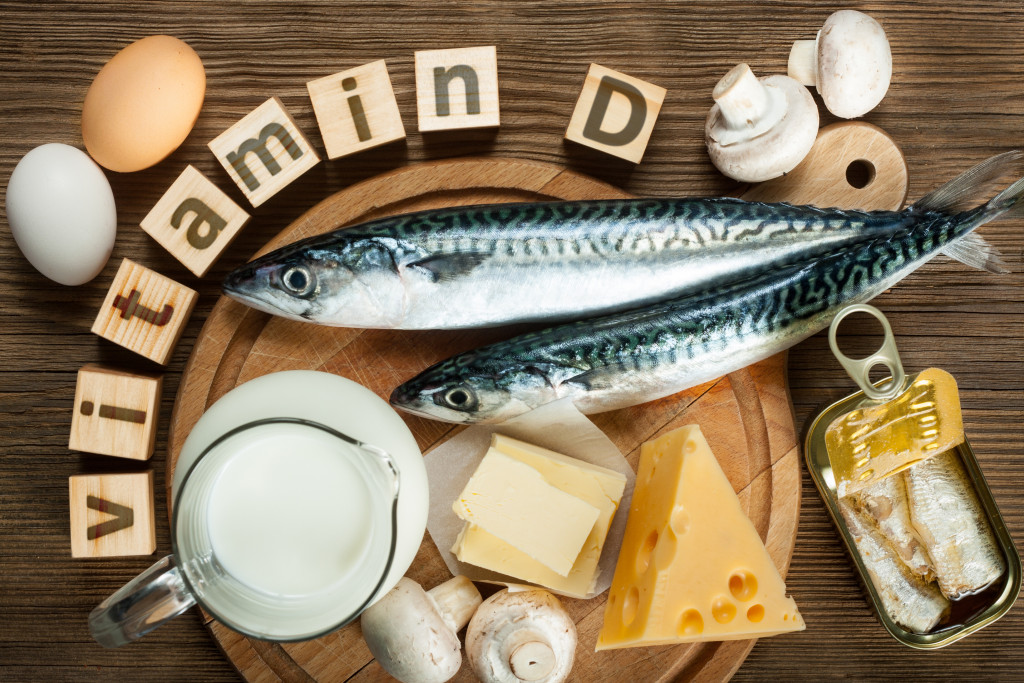Menopause is a normal part of aging for every woman. It is an important transition when a woman reaches the end of her menstrual cycle. As the female body makes less and less estrogen and progesterone, the reproductive hormones play an important role in fertility.
Most women will begin to experience changes in their menstrual cycles. Their periods may become heavier or lighter, last longer or shorter, or become less frequent. By the time they reach their 50s, they stop releasing eggs. They will no longer have their period.
Menopause is natural, but it often comes with awkward and uncomfortable symptoms. Months before menopause, women may experience vaginal dryness, hot flashes, chills, night sweats, weight gain, thinning hair, dry skin, sleep problems, and mood changes.
Menopause is not a disease, but it is a difficult process that women have to go through. Nutrition seems to help ease symptoms. By vitamin supplements daily or a vitamin drip monthly, a woman’s experience of menopause may become more pleasant.
According to studies, here are the vitamins and minerals that can provide relief from the signs of menopause.
Vitamin C
People typically take vitamin C for immunity, but it can also prevent signs of menopause among women.
In one study, women who consumed more vitamin C right before menopause had higher bone density than those who did not. Women who are at menopausal age are at a higher risk of osteoporosis. Participants from the same study who consumed more vitamin C performed better in cognitive tests, too.
Vitamin C is an antioxidant that fights oxidative stress in the body. It also plays an important role in bone health because it is necessary for the formation of collagen, one of the main components of mature bones.
Women can take vitamin C in supplement form, but the nutrient is also present in many fruits and vegetables. Oranges, peppers, broccoli, potatoes, strawberries, and brussel sprouts are some of the foods that contain vitamin C.
Vitamin D

Many people are deficient in vitamin D, a vital nutrient produced by the skin as a response to sun exposure.
Like vitamin C, vitamin D prevents plays an important role in maintaining bone health. During menopause, there are changes in hormonal production, particularly estrogen. The process contributes to osteoporosis or the weakening of the bones. The bones become more fragile and more at risk of breaking.
Adults need 600 IU of vitamin D every day to prevent deficiency. Usually, standing under the sun for 20 minutes will generate the right dose of vitamin D. Eating foods such as eggs, fortified milk, and fatty fish will also count toward your daily dose of vitamin D.
B Vitamins
Researchers have found that B vitamins play an important role in menopause because deficiency of these vital nutrients can result in serious health consequences. Women who go through menopause are at a higher risk of cardiovascular disease, stroke, and dementia. Having enough B vitamins in the body can prevent these illnesses.
One effect of menopause that is not often talked about is brain fog. It has also been dubbed “menopause brain” because it occurs due to changes in the body’s hormonal levels. Women who have experienced menopause-related brain fog complain about the inability to think clearly and difficulty making a decision.
Around two-thirds of all perimenopausal or menopausal women experience menopause-related brain fog.
B vitamins, specifically B-16 and B-12, boost cognitive function, including the ability to think, remember, and process new information. It can also lower the risk of dementia over time.
Depression can also be a problem among women going through menopause. In fact, according to estimates, menopausal women are twice more likely to have depression during the transition.
Experts theorize that, during menopause, there is a window of vulnerability when women become more sensitive to the different hormonal changes occurring within the body, putting them at a greater risk of becoming depressed.
A higher intake of vitamin B-6 has previously been proven to prevent depression among seniors, including women going through menopause.
Beef liver, tuna, chicken, chickpeas, peas, asparagus, lettuce, fish, and egg have essential B vitamins.
While menopause is not an illness, it can make the body feel ill. It comes with different symptoms that make aging difficult for women. A few things can alleviate the discomfort, including eating a balanced diet that provides the right amount of nutrition that supports the body as it goes through changes.

